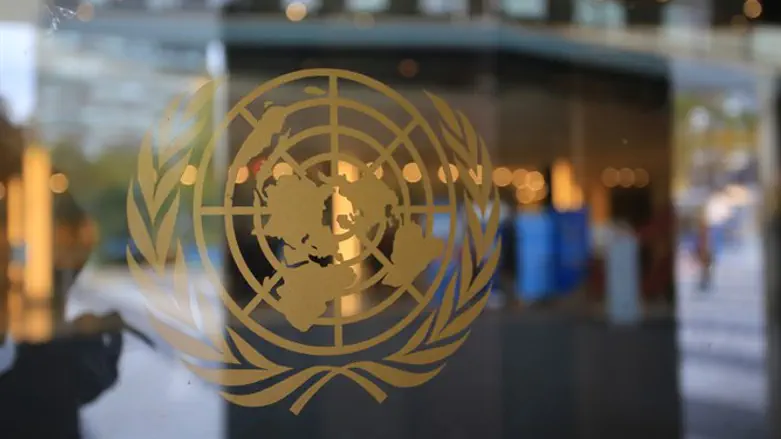
If any other nation were speaking openly about "annexing" an area that it has held control over for well over 50 years, The New York Times would not have taken any serious notice, let alone have issued an editorial about it. But the Times did exactly that on May 31.
In printing "...there are many reasons actual annexation is a bad idea.The main reason is that the West Bank [sic] is regarded by international organizations and most of the world as occupied territory, and the Jewish settlements as illegal under the Geneva Convention," the Times was once again singling Israel 
The threat of resolutions did not stop Begin from doing what was in Israel's best interest and was needed to protect its very existence. out for criticism and holding it to a higher standard than it does any other country.
out for criticism and holding it to a higher standard than it does any other country.
Too many pro-Israel activists have argued against criticism of Israel exercising its sovereign rights here by pointing out security needs, the Palestinian Authority's continuous incitement, historical and religious claims, the legality of "the settlements," and the like.
What seems unclear to these defenders of Israel is that these are defensive positions. and by their very nature do very little to change the closed minds of people like those that make up the audience of the Times. The holding of Israel to a higher and unfair standard will not end in any foreseeable future. Individuals who care about Israel's future need to internalize that.
The world's opinion of Israel's choices matters much less than the results of these said choices.
A quick review of the history of just a few of the very many times that Israel was criticized by the U.N. for its actions because it supposedly violated "international law" is instructive here. But, first, a reminder that "international law" is not something that really exists. And even if it did exist, there are times any country would be correct to ignore it -- especially countries that reside in uniquely rough neighborhoods like today's Middle East.
Remarkably, the Times's editorial was published just days after the 60th anniversary of the capture of Nazi war criminal Adolf Eichmann.
-After the Mossad's capture of Eichmann in Argentina, the United Nations Security Council passed Resolution 138 on June 23, 1960 complaining it was a "violation of the sovereignty of a Member State."
Some twenty years later Israel's Prime Minister Menachem Begin initiated significant action three additional times that are well worth noting.
-On July 30, 1980, the Knesset ratified the "Basic Law: Jerusalem, Capital of Israel" that, among other things, applied sovereignty to the city, including the Old City, even though the Law, rightly, did not use the terms sovereignty or annexation. United Nations Security Council Resolution 478 attacked Israel for the move.
-On June 7, 1981, an Israeli air force raid carried out on June 7, 1981 that destroyed the Osirak nuclear reactor under construction in Iraq. The United Nations adopted Security Council Resolution 487 harshly criticizing Israel for the operation.
-On December 14, 1981, Israel's Knesset passed the Golan Heights Law through which Israeli law was applied to the Golan Heights. The United Nations Security Council Resolution 497 called the Israeli action "null and void and without international legal effect." In March 2019, the United States officially stated that it recognized Israeli sovereignty of the Golan.
The threat of resolutions did not stop Begin from doing what was in Israel's best interest and was needed to protect its very existence.
Can one imagine what the Gulf War would have looked like for Israel and the U.S., had Saddam Hussein possessed nuclear-armed SCUD missiles or what the Syrian Civil War would have meant for Israel if Assad controlled the Golan?
In the end what did the U.N.'s Security Council Resolutions really mean for Israel? Was there any tangible impact? Any lasting impact at all?
It is worth noting that Begin was not alone in the 1980s in seeing his actions criticized by the U.N.. President Ronald Reagan's 1986 order to bomb Libya and 1983 order to invade Grenada also were condemned by the U.N. and called illegal.
But Begin was not alone. Prime minister Yitzhak Rabin and defense minister Shimon Peres gave the go ahead for the 1976 Entebbe rescue mission.
-In the aftermath of the Entebbe operation then U.N. Secretary General Kurt Waldheim described the raid as "a serious violation of the national sovereignty of (Uganda) a United Nations member state." The U.N. should have praised the Israeli victory against the terrorist hijackers but failed to do so.
The U.N. sides with Israel's enemies again and again - no matter what the issue. And that is the simple truth.
We cannot hold our breath and wait for the U.N. to ever praise Israel or approve of its actions. Even a move such as this, which is in reality simply the enforcing of the 1920 San Remo conference's binding international treaty that called for all of this land (including the 30% of Judea and Samaria that the Israeli government has said it will not be applying sovereignty in at all), to be included in the Jewish homeland.
What we can do is remind Israel's leaders, and ourselves, that instead of hesitating, we should look to the five examples mentioned above and gain the confidence necessary to do necessary things. History has taught us this. It has also taught us that Israel is not hurt by U.N. criticism and threats.
Moshe Phillips is national director of Herut North America’s U.S. division; Herut is an international movement for Zionist pride and education and is dedicated to the ideals of pre-World War Two Zionist leader Ze'ev Jabotinsky. Herut's website is www.herutna.org